Liberia’s Agricultural Revolution: Sustainable Farming Practices Boost Food Security and Economic Growth
“Liberia’s NADP 2024-2030 aims to boost food security and reduce poverty, targeting sustainable development across 7 years.”
In the heart of West Africa, Liberia is embarking on a transformative journey that promises to revolutionize its agricultural landscape. We are witnessing a pivotal moment in the country’s history as the government unveils ambitious initiatives to boost sustainable farming practices and enhance food security. This agricultural revolution is not just about increasing crop yields; it’s a comprehensive strategy aimed at fostering economic growth, reducing poverty, and creating a self-sustaining future for all Liberians.
The Dawn of a New Agricultural Era in Liberia
Liberia’s agricultural sector has long been the backbone of its economy, employing a significant portion of the population. However, challenges such as limited access to finance, outdated farming techniques, and inadequate infrastructure have hindered its full potential. Recognizing these obstacles, the Liberian government has taken bold steps to transform the sector, placing agriculture at the forefront of national development.
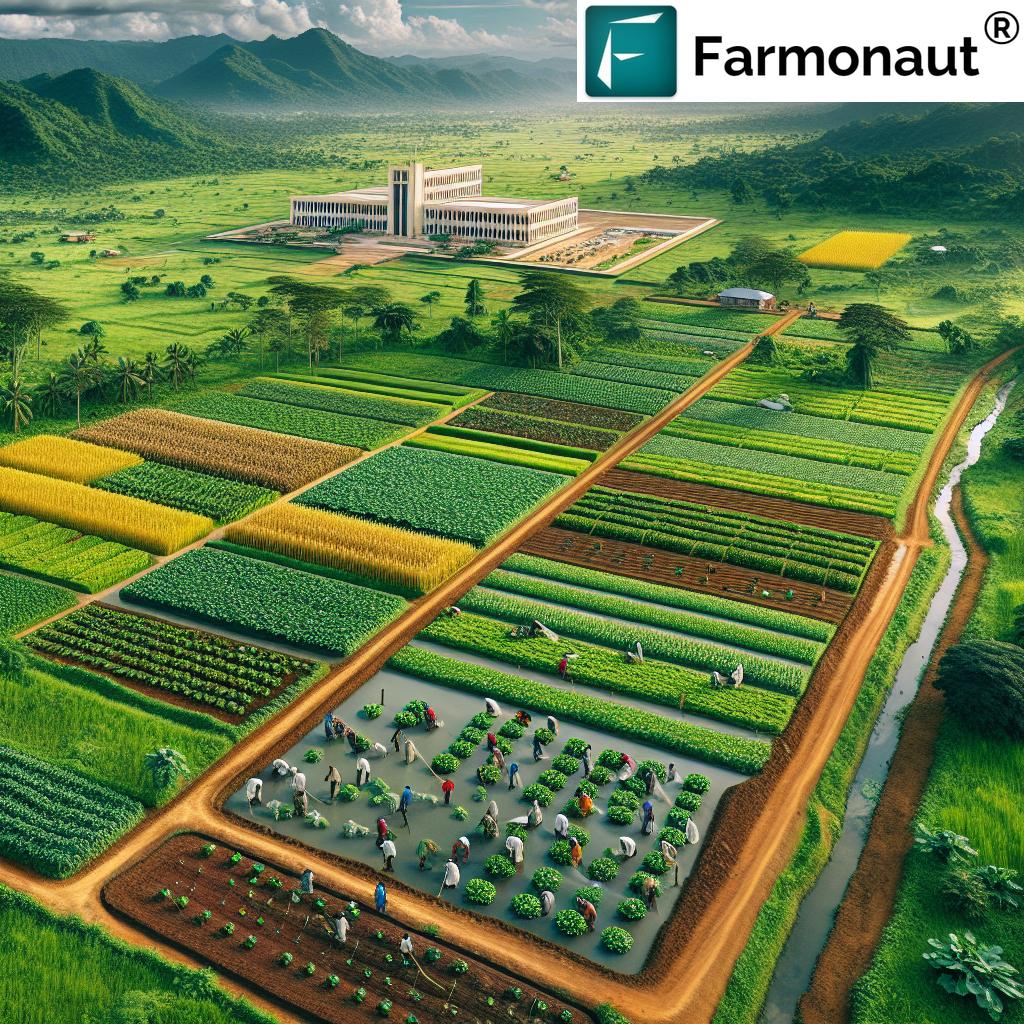
The Agricultural Bank: A Game-Changer for Liberian Farmers
One of the most groundbreaking initiatives in this agricultural revolution is the establishment of an agricultural bank. This innovative financial institution aims to address one of the most pressing challenges faced by Liberian farmers: access to credit. For years, commercial banks have been hesitant to provide loans to farmers due to perceived risks and lack of collateral. The new agricultural bank is set to change this narrative.
- Tailored Financial Solutions: The bank will offer loans specifically designed for agricultural needs, taking into account the unique cash flow patterns of farming operations.
- Flexible Repayment Terms: Understanding the seasonal nature of agriculture, the bank will provide repayment schedules that align with harvest cycles.
- Lower Interest Rates: By focusing solely on agriculture, the bank can offer more competitive interest rates compared to traditional commercial banks.
- Technical Support: Beyond financial services, the bank will provide agricultural expertise to help farmers make informed decisions about their investments.
This initiative is expected to significantly boost agricultural productivity by providing farmers with the capital they need to invest in better seeds, machinery, and innovative farming techniques. It’s a crucial step towards modernizing Liberia’s agricultural sector and empowering farmers to become more efficient and profitable.
The National Agriculture Development Plan (NADP 2024-2030): A Roadmap for Success
At the core of Liberia’s agricultural revolution is the National Agriculture Development Plan (NADP 2024-2030). This comprehensive strategy outlines the government’s vision for transforming the agricultural sector over the next seven years. The NADP is not just a document; it’s a commitment to sustainable development, food security, and poverty reduction.
Key Objectives of the NADP:
- Increase Agricultural Productivity: Through the adoption of modern farming techniques and technologies, the plan aims to significantly boost crop yields and livestock production.
- Enhance Food Security: By increasing domestic food production, Liberia aims to reduce its reliance on imports and ensure a stable food supply for its population.
- Promote Sustainable Farming Practices: The plan emphasizes environmentally friendly farming methods to preserve Liberia’s natural resources for future generations.
- Develop Value Chains: By improving processing, storage, and marketing facilities, the NADP seeks to add value to agricultural products and increase farmers’ incomes.
- Create Employment Opportunities: The growth of the agricultural sector is expected to generate jobs, particularly for youth and women in rural areas.
The NADP 2024-2030 is a testament to Liberia’s commitment to agricultural development and its recognition of the sector’s potential to drive economic growth. By setting clear goals and strategies, the plan provides a roadmap for all stakeholders to work towards a common vision of a prosperous and food-secure Liberia.
Empowering Youth and Women in Agriculture
A key focus of Liberia’s agricultural revolution is the empowerment of youth and women in the farming sector. Recognizing that these groups are vital to the future of agriculture, the government has launched targeted initiatives to encourage their participation and success in farming.
Youth in Agriculture Program
The Youth in Agriculture Program is designed to attract young Liberians to farming and agribusiness. This initiative addresses the aging farmer population and aims to inject new energy and innovation into the sector.
- Training and Mentorship: Young farmers receive comprehensive training in modern agricultural techniques and business management.
- Access to Land: The program facilitates access to arable land for youth interested in starting their farming ventures.
- Technology Integration: Young farmers are introduced to agricultural technologies, including those offered by companies like Farmonaut, to modernize their farming practices.
- Financial Support: In collaboration with the new agricultural bank, young farmers are provided with start-up capital and ongoing financial guidance.
Women Empowerment in Farming
Women play a crucial role in Liberian agriculture, often managing small-scale farms that are vital for family nutrition and income. The government’s initiatives aim to strengthen their position in the sector:
- Gender-Sensitive Policies: The NADP includes specific provisions to ensure women’s equal access to resources, training, and markets.
- Cooperative Formation: Women are encouraged to form farming cooperatives, increasing their bargaining power and access to resources.
- Skill Development: Tailored training programs focus on enhancing women’s agricultural skills and introducing them to value-added activities.
- Access to Technology: Women farmers are provided with tools and training to use agricultural technologies, improving their productivity and reducing labor intensity.
By focusing on youth and women, Liberia is not only addressing current agricultural needs but also building a strong foundation for the future of the sector. These initiatives are expected to create a new generation of farmers who are equipped with the knowledge, skills, and resources to drive agricultural innovation and growth.
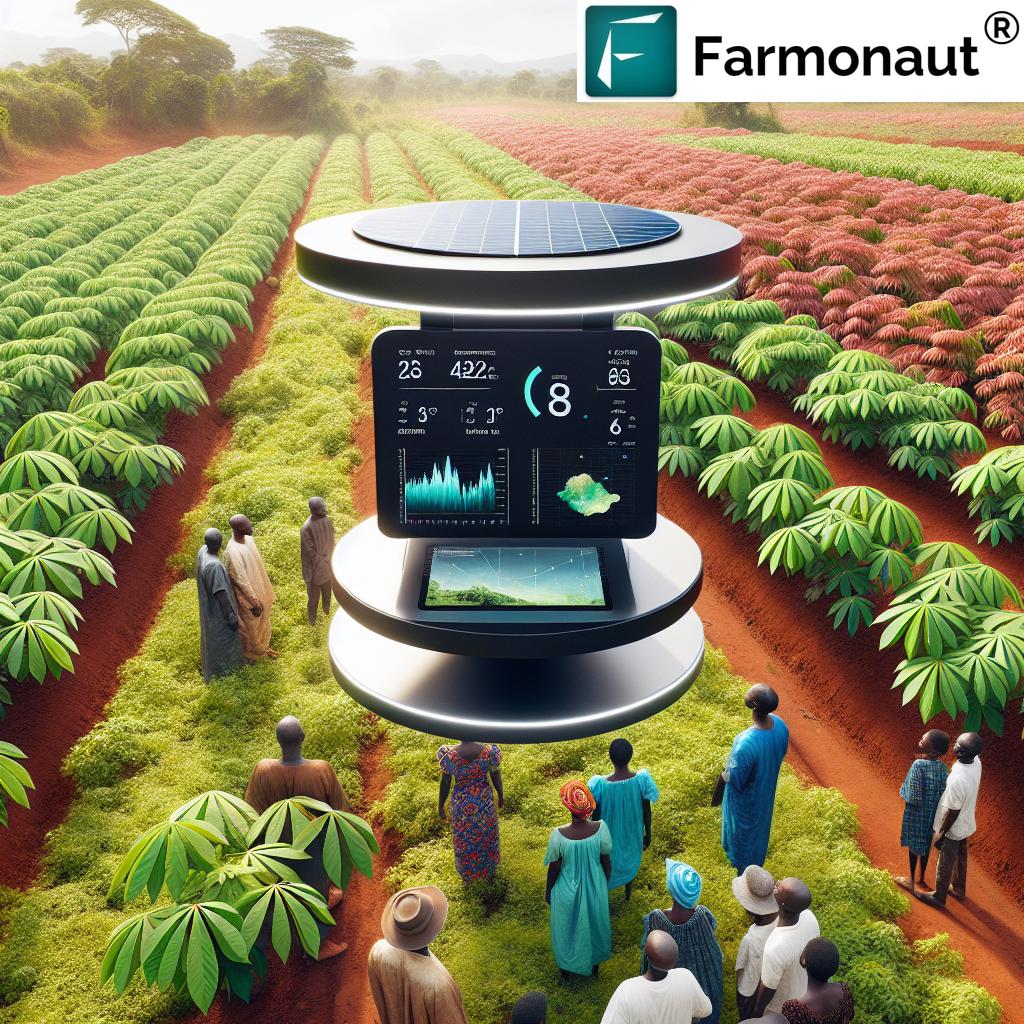
“The Liberian government’s initiative to establish an agricultural bank could potentially benefit over 70% of the population engaged in farming.”
Innovative Farming Techniques and Agricultural Technology Adoption
At the heart of Liberia’s agricultural revolution is the adoption of innovative farming techniques and cutting-edge agricultural technologies. These advancements are crucial for increasing productivity, improving resource management, and ensuring sustainable growth in the sector.
Precision Agriculture: A Game-Changer for Liberian Farmers
One of the most promising developments in Liberia’s agricultural landscape is the introduction of precision agriculture. This approach uses data-driven insights to optimize farming practices, leading to increased yields and reduced resource waste. Here’s how precision agriculture is transforming Liberian farming:
- Satellite-Based Crop Monitoring: Farmers can now access real-time data on crop health, soil moisture, and potential pest infestations through satellite imagery. This technology, offered by companies like Farmonaut, allows for timely interventions and precise resource allocation.
- Weather Forecasting: Advanced weather prediction models help farmers make informed decisions about planting, irrigation, and harvesting schedules.
- Soil Health Analysis: Detailed soil mapping and analysis enable farmers to optimize fertilizer use and crop selection based on specific soil conditions.
- Drone Technology: Drones are being introduced for crop spraying, monitoring, and mapping, increasing efficiency and reducing labor costs.
The adoption of these technologies is supported by training programs and partnerships with tech companies, ensuring that Liberian farmers can fully leverage these tools to improve their productivity and profitability.
Sustainable Farming Practices
Alongside technological advancements, Liberia is placing a strong emphasis on sustainable farming practices. These methods aim to preserve the country’s rich natural resources while boosting agricultural output:
- Conservation Agriculture: Techniques such as minimal tillage, crop rotation, and permanent soil cover are being promoted to improve soil health and water retention.
- Agroforestry: Integrating trees into farming systems is helping to improve soil fertility, provide additional income sources, and combat deforestation.
- Integrated Pest Management: Farmers are being trained in biological pest control methods, reducing reliance on chemical pesticides.
- Water Management: Efficient irrigation systems and rainwater harvesting techniques are being implemented to address water scarcity issues.
These sustainable practices not only enhance productivity but also contribute to Liberia’s efforts to mitigate climate change and protect its biodiversity.
Reducing Food Imports and Utilizing Fertile Land Resources
A critical aspect of Liberia’s agricultural revolution is the push towards self-sufficiency in food production. The government’s call to “Liberians Feed Yourselves” encapsulates this vision, emphasizing the need to reduce reliance on food imports and make better use of the country’s fertile land resources.
Strategies for Reducing Food Imports
- Crop Diversification: Encouraging farmers to grow a wider variety of crops to meet local food demands.
- Import Substitution: Identifying key imported food items and developing local production capacity for these products.
- Value Addition: Investing in food processing facilities to produce value-added products that can compete with imports.
- Quality Control: Implementing stringent quality standards to ensure locally produced food meets or exceeds the quality of imports.
Utilizing Liberia’s Fertile Land Resources
Liberia is blessed with abundant fertile land, but much of it remains underutilized. The government is implementing several strategies to maximize the use of these resources:
- Land Reform: Streamlining land ownership and usage rights to encourage investment in agriculture.
- Infrastructure Development: Improving rural roads and storage facilities to make remote fertile areas accessible and productive.
- Irrigation Projects: Developing irrigation systems to expand arable land and enable year-round farming.
- Sustainable Land Management: Implementing practices to prevent soil degradation and maintain long-term fertility.
By focusing on these areas, Liberia aims to transform its vast land resources into productive agricultural assets, contributing to food security and economic growth.
International Partnerships and Private Sector Collaboration
Liberia’s agricultural revolution is not a solo endeavor. The government recognizes the importance of international partnerships and private sector collaboration in achieving its ambitious goals. These collaborations bring in expertise, technology, and capital that are crucial for the sector’s transformation.
Role of International Partners
- Technical Assistance: International organizations provide expertise in areas such as agricultural research, policy development, and capacity building.
- Funding Support: Development partners offer grants and low-interest loans to finance key agricultural projects.
- Technology Transfer: Partnerships facilitate the transfer of advanced agricultural technologies and practices from developed countries.
- Market Access: International collaborations help open up new export markets for Liberian agricultural products.
Private Sector Engagement
The private sector plays a crucial role in driving innovation and investment in Liberia’s agricultural sector:
- Agribusiness Development: Private companies are encouraged to invest in large-scale farming operations and agro-processing facilities.
- Input Supply: Private sector actors are key in providing high-quality seeds, fertilizers, and equipment to farmers.
- Technology Providers: Companies like Farmonaut offer innovative solutions that can be integrated into Liberia’s agricultural practices.
- Financial Services: Private financial institutions complement the agricultural bank in providing diverse financial products to the sector.
These collaborations are creating a synergy that accelerates the pace of agricultural development in Liberia, bringing together global expertise and local knowledge to address the unique challenges and opportunities in the country’s farming sector.
The Role of Technology in Liberia’s Agricultural Revolution
As Liberia embarks on its agricultural revolution, the role of technology cannot be overstated. Advanced agricultural technologies are key to increasing productivity, improving resource management, and ensuring sustainable growth in the sector. Companies like Farmonaut are at the forefront of this technological transformation, offering innovative solutions that can significantly benefit Liberian farmers.
Satellite-Based Farm Management
One of the most promising technologies for Liberian agriculture is satellite-based farm management. This technology offers several benefits:
- Real-Time Crop Monitoring: Farmers can track crop health, detect pest infestations, and monitor soil moisture levels without physically visiting every part of their fields.
- Precision Agriculture: By providing detailed insights into field conditions, satellite technology enables farmers to apply inputs like water and fertilizers precisely where and when they’re needed.
- Yield Prediction: Advanced algorithms can predict crop yields based on satellite imagery, helping farmers and policymakers plan better.
- Resource Optimization: By identifying areas of stress or low productivity, farmers can allocate resources more efficiently, reducing waste and increasing profitability.
Farmonaut’s satellite-based solutions are particularly relevant for Liberia, as they offer these advanced capabilities through accessible platforms like mobile apps and web interfaces. This means even smallholder farmers in remote areas can benefit from cutting-edge agricultural technology.
AI-Powered Advisory Systems
Artificial Intelligence (AI) is another game-changing technology for Liberian agriculture. AI-powered advisory systems can provide personalized recommendations to farmers based on a variety of data points:
- Crop Selection: AI can suggest the most suitable crops based on soil conditions, climate data, and market demands.
- Pest and Disease Management: Early detection and treatment recommendations for crop diseases and pest infestations.
- Weather-Based Advice: Customized recommendations for planting, irrigation, and harvesting based on weather forecasts.
- Market Intelligence: Insights into market trends and price forecasts to help farmers make informed decisions about what to grow and when to sell.
These AI-driven insights can be particularly valuable for Liberian farmers who may not have easy access to agricultural experts or extension services.
Blockchain for Agricultural Traceability
Blockchain technology is set to revolutionize agricultural supply chains in Liberia:
- Product Traceability: Blockchain can create an immutable record of a product’s journey from farm to consumer, enhancing food safety and quality assurance.
- Fair Trade Practices: Transparent supply chains can ensure fair pricing and ethical practices, benefiting smallholder farmers.
- Export Opportunities: Blockchain-based traceability can help Liberian agricultural products meet international standards and access global markets.
- Reduced Fraud: The technology can help prevent counterfeit products and ensure the authenticity of high-value Liberian exports.
By adopting blockchain technology, Liberia can position its agricultural sector for greater competitiveness in the global market.
Implementing Sustainable Farming Practices in Liberia
As Liberia pushes forward with its agricultural revolution, the implementation of sustainable farming practices is paramount. These practices not only ensure long-term productivity but also protect the country’s rich natural resources. Here’s how Liberia is embracing sustainability in its agricultural sector:
Conservation Agriculture
Conservation agriculture is a set of practices that aims to minimize soil disturbance, maintain permanent soil cover, and diversify crop species. In Liberia, this approach is being promoted through:
- Minimal Tillage: Encouraging farmers to reduce or eliminate plowing to preserve soil structure and reduce erosion.
- Cover Crops: Promoting the use of cover crops to protect soil, improve fertility, and suppress weeds.
- Crop Rotation: Implementing diverse crop rotations to break pest cycles and improve soil health.
Agroforestry
Agroforestry, the integration of trees into farming systems, is particularly relevant for Liberia given its rich forest resources. This practice offers multiple benefits:
- Soil Improvement: Trees help prevent soil erosion and improve soil fertility through leaf litter and nitrogen fixation.
- Diversified Income: Farmers can harvest tree products (fruits, timber, etc.) alongside their regular crops.
- Climate Resilience: Trees provide shade and windbreaks, protecting crops from extreme weather events.
Integrated Pest Management (IPM)
IPM is an eco-friendly approach to pest control that minimizes the use of chemical pesticides. In Liberia, this includes:
- Biological Control: Introducing natural predators to control pest populations.
- Cultural Practices: Implementing crop rotation and intercropping to disrupt pest life cycles.
- Monitoring: Regular field scouting to detect pest problems early and intervene only when necessary.
Water Management
Efficient water management is crucial for sustainable agriculture in Liberia. Key strategies include:
- Rainwater Harvesting: Capturing and storing rainwater for use during dry periods.
- Drip Irrigation: Promoting water-efficient irrigation systems, especially for high-value crops.
- Wetland Conservation: Protecting natural wetlands that play a crucial role in water regulation and biodiversity.
By implementing these sustainable practices, Liberia is not only enhancing its agricultural productivity but also contributing to global efforts in climate change mitigation and biodiversity conservation.
Liberia’s Agricultural Development Initiatives
| Initiative | Objective | Target Group | Estimated Impact |
|---|---|---|---|
| Agricultural Bank | Improve financial access | Farmers | Projected loan disbursement of $50 million annually |
| NADP 2024-2030 | Food security and economic growth | General population | Expected 5% increase in GDP contribution from agriculture |
| Youth in Agriculture Program | Engage young farmers | Youth | Estimated creation of 50,000 new jobs in agriculture |
| Women Empowerment in Farming | Gender equality in agriculture | Women farmers | Projected 30% income increase for women in agriculture |
| Agricultural Technology Adoption | Modernize farming practices | All farmers | Expected 25% yield improvement across major crops |
The Path Forward: Challenges and Opportunities
As Liberia embarks on this ambitious agricultural revolution, it faces both challenges and opportunities. Addressing these challenges while capitalizing on the opportunities will be crucial for the success of the country’s agricultural transformation.
Challenges
- Infrastructure Gaps: Inadequate rural roads, storage facilities, and electricity supply can hinder the growth of the agricultural sector.
- Climate Change: Changing weather patterns and extreme events pose risks to agricultural productivity.
- Technology Adoption: Ensuring widespread adoption of new technologies among smallholder farmers can be challenging.
- Market Access: Connecting farmers to markets, both domestic and international, remains a significant hurdle.
Opportunities
- Youth Engagement: The growing youth population presents an opportunity to inject new energy and innovation into the agricultural sector.
- Technology Integration: Leveraging technologies like those offered by Farmonaut can significantly boost agricultural productivity and efficiency.
- Export Potential: Liberia’s unique agricultural products have the potential to tap into niche international markets.
- Sustainable Practices: Adopting sustainable farming methods can position Liberia as a leader in eco-friendly agriculture.
By addressing these challenges and seizing the opportunities, Liberia can create a robust, sustainable, and inclusive agricultural sector that drives economic growth and ensures food security for generations to come.
Conclusion: A Bright Future for Liberian Agriculture
Liberia’s agricultural revolution represents a turning point in the country’s development journey. Through strategic initiatives like the establishment of an agricultural bank, the implementation of the National Agriculture Development Plan, and the adoption of innovative farming techniques, Liberia is laying the foundation for a prosperous and sustainable agricultural future.
The focus on empowering youth and women in agriculture, coupled with the integration of cutting-edge technologies, positions Liberia to become a model for agricultural development in Africa. As the country moves forward with its vision of “Liberians Feed Yourselves,” it not only aims for food security but also for economic growth, poverty reduction, and environmental sustainability.
The success of this agricultural revolution will depend on the collective efforts of farmers, policymakers, international partners, and technology providers. Companies like Farmonaut, with their advanced satellite-based farm management solutions, have a crucial role to play in supporting Liberia’s agricultural transformation.
As Liberia embraces sustainable farming practices and leverages its fertile land resources, it is poised to become a beacon of agricultural innovation in West Africa. The journey ahead may have challenges, but with determination, innovation, and collaboration, Liberia’s agricultural sector is set to flourish, bringing prosperity and food security to its people.
FAQ Section
Q: What is the main goal of Liberia’s agricultural revolution?
A: The main goal is to boost sustainable farming practices, enhance food security, and drive economic growth through agricultural development.
Q: How will the new agricultural bank benefit Liberian farmers?
A: The agricultural bank will provide tailored financial solutions, including loans with flexible terms and lower interest rates, specifically designed for farmers’ needs.
Q: What role does technology play in Liberia’s agricultural transformation?
A: Technology, including satellite-based farm management systems, AI-powered advisory tools, and blockchain for traceability, plays a crucial role in modernizing and optimizing agricultural practices in Liberia.
Q: How is Liberia addressing the challenges of climate change in agriculture?
A: Liberia is promoting sustainable farming practices, including conservation agriculture, agroforestry, and efficient water management techniques to build resilience against climate change impacts.
Q: What opportunities exist for youth in Liberia’s agricultural sector?
A: The Youth in Agriculture Program offers training, access to land, technology integration support, and financial assistance to encourage young Liberians to engage in farming and agribusiness.
As Liberia continues its journey towards agricultural transformation, the integration of advanced technologies and sustainable practices will be key to its success. For farmers and agricultural stakeholders looking to be part of this revolution, exploring solutions like those offered by Farmonaut can provide valuable support in achieving these ambitious goals.
Explore Farmonaut’s solutions:
For developers interested in integrating agricultural data into their solutions, check out Farmonaut’s API:




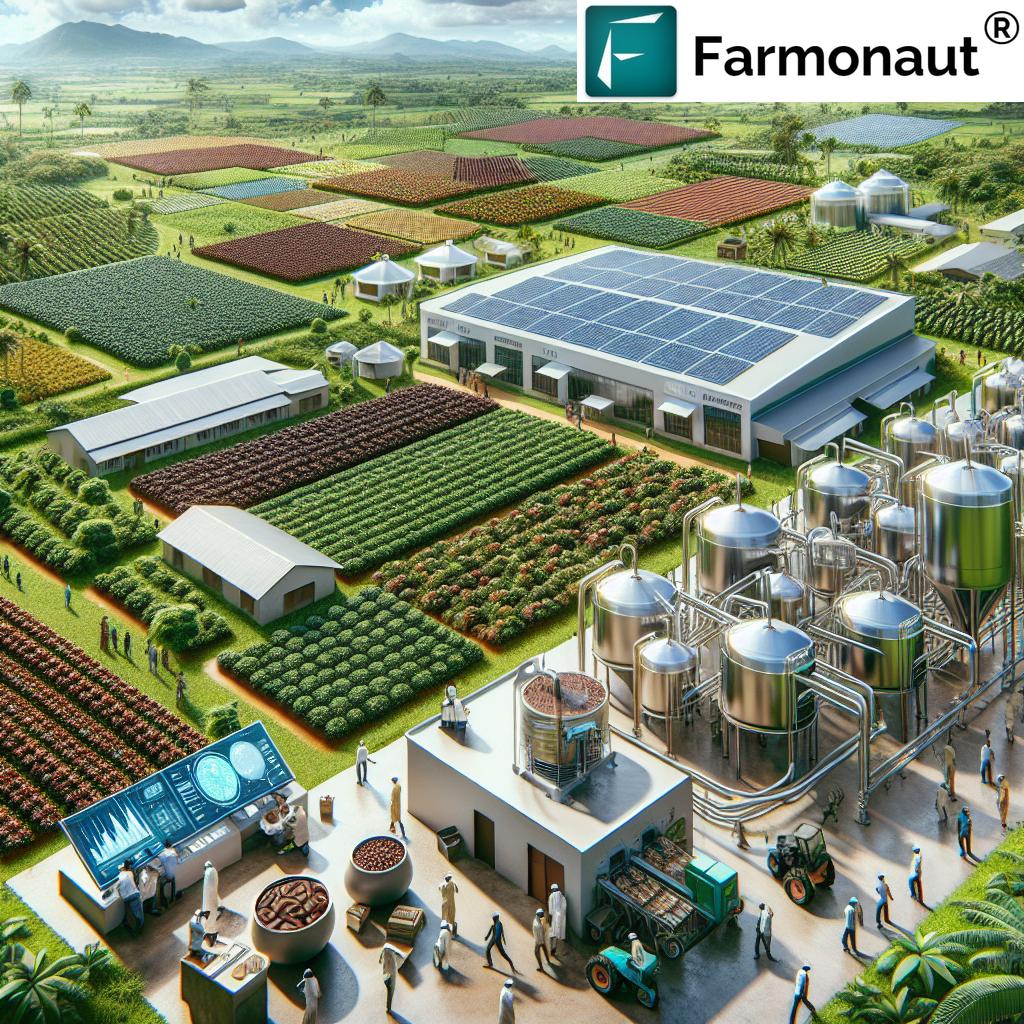

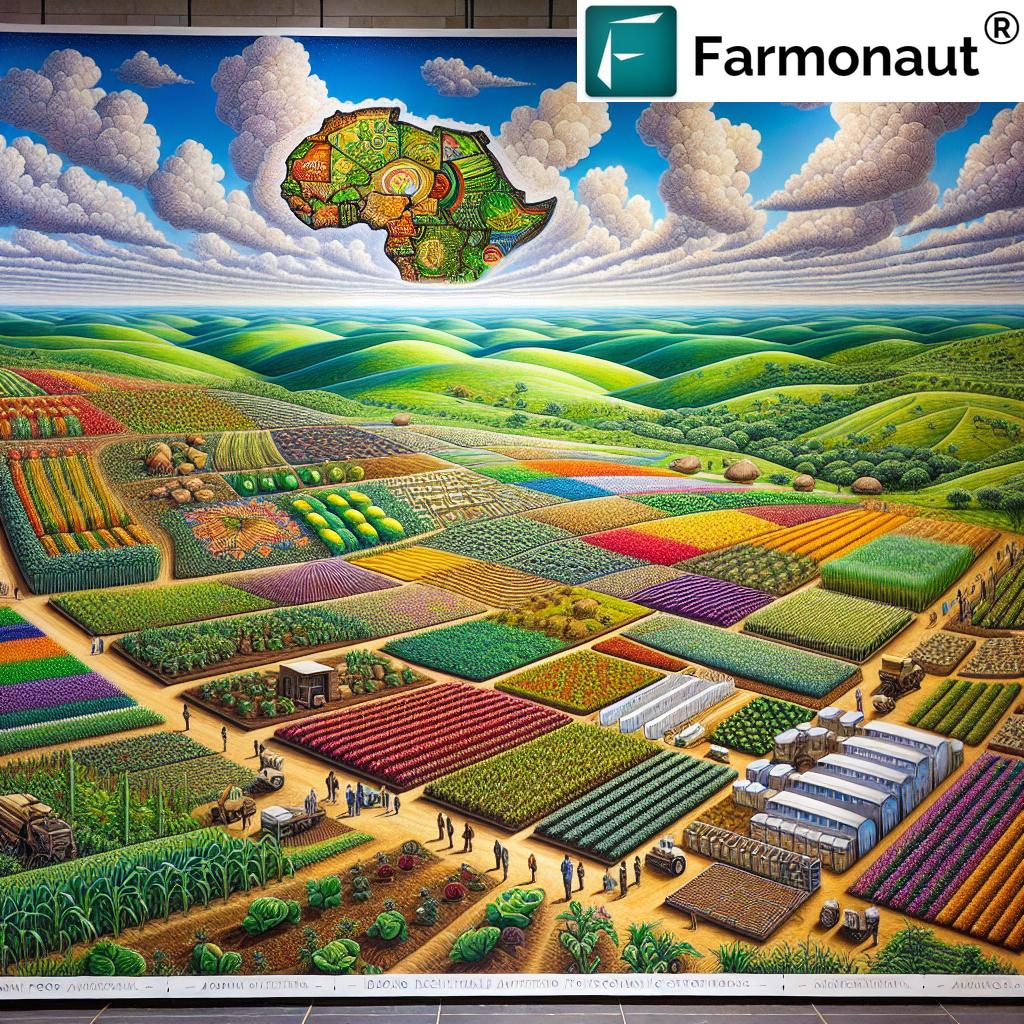



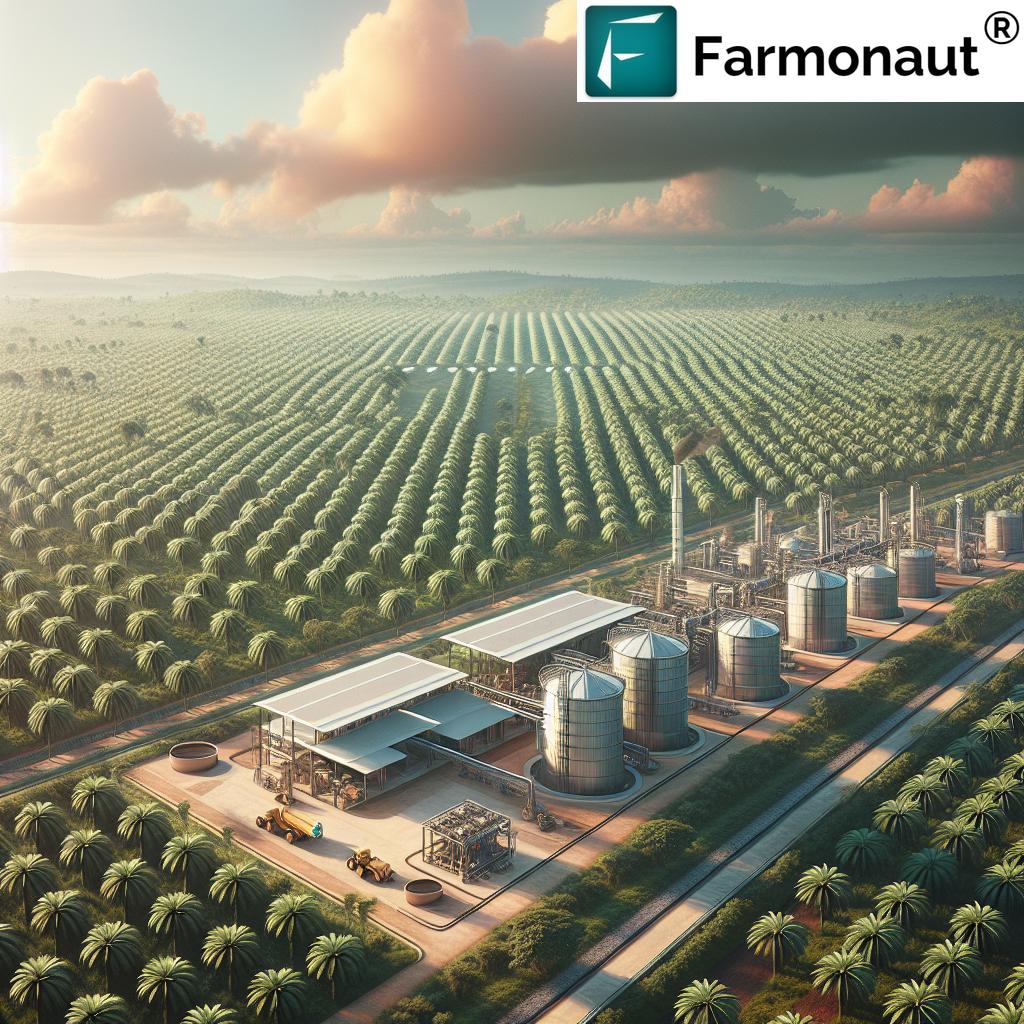

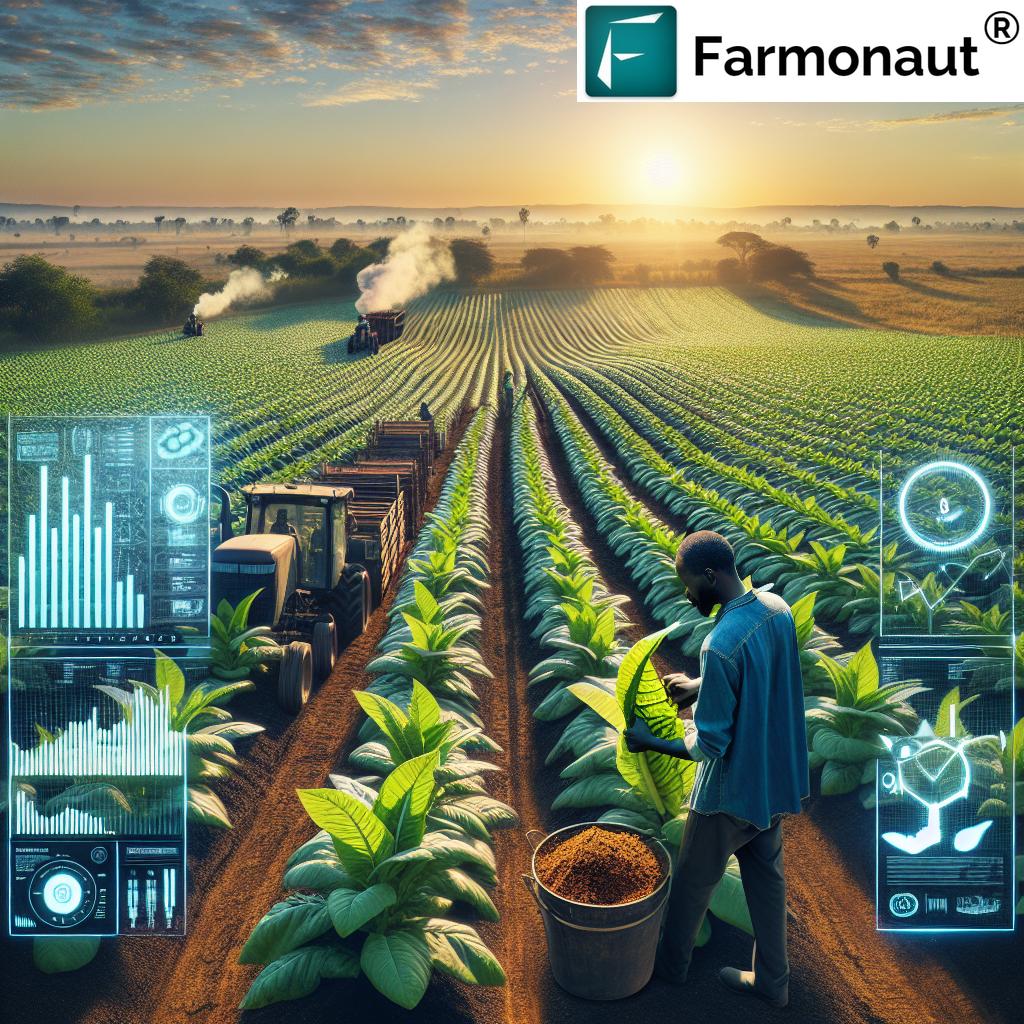
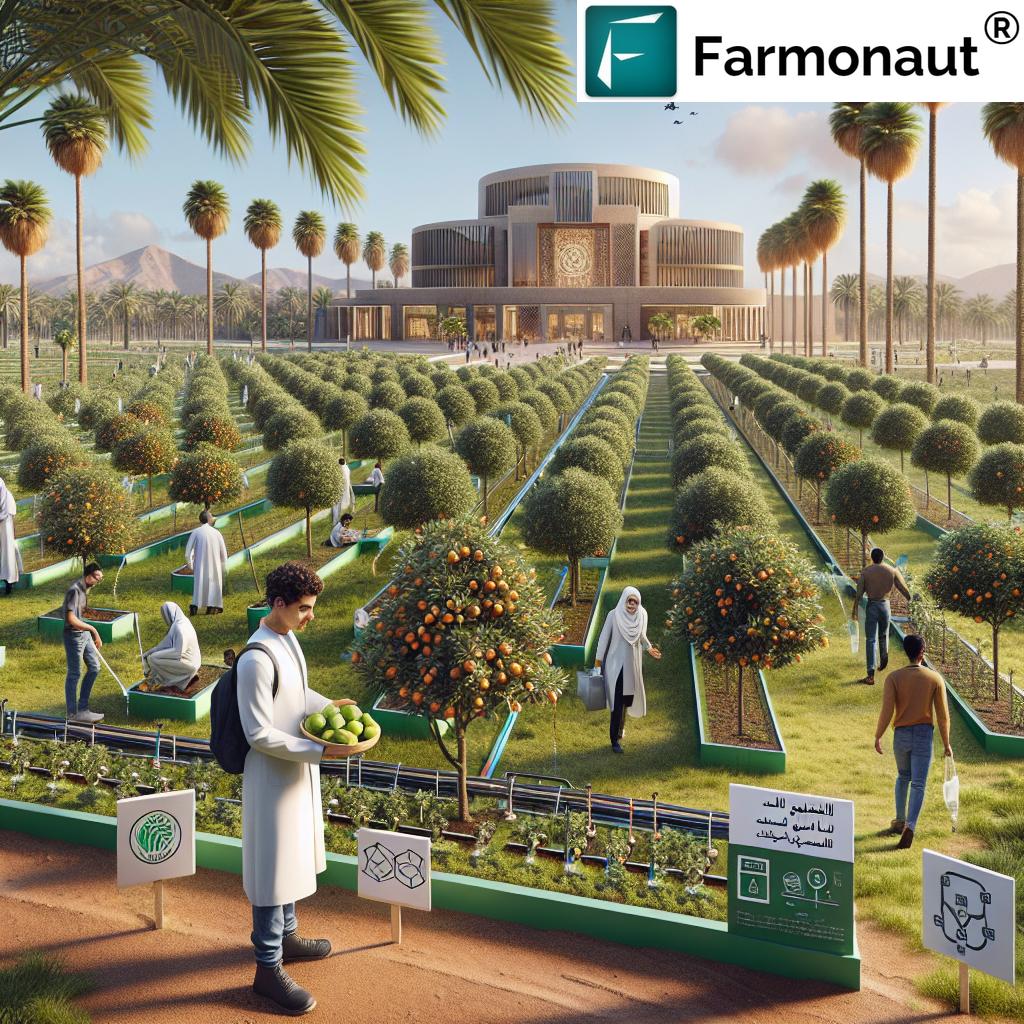
How can the integration of advanced technologies and sustainable practices, such as those offered by Farmonaut, contribute to Liberia’s agricultural transformation?
Greeting : IT Telkom